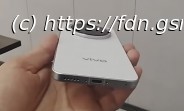Array
Back in 2021, Google effectively rebooted its efforts with Pixel hardware with the arrival of the first Tensor processor. That’s led to some big changes but 2024 finally marks the year that the transition is entering its final stage.Snapdragon Pixels are (almost) dead
This week’s release of the first Android 15 Developer Preview sealed the fate of the last Snapdragon Pixels. Launched in 2020 and 2021, the Pixel 4a, 4a 5G, 5, and Pixel 5a were the last batch of Google smartphones powered by Qualcomm chipsets.
Android 15 officially only supports Pixels released after late 2021. The Pixel 6 and Pixel 6 Pro are the oldest devices supported, both having launched in October of that year. Notably, though, this will be the last big update even for those devices. However, Google will continue security updates for two more years on Pixel 6 and Pixel 6 Pro.
Circling back, though, the Pixel 4a, 4a 5G, 5, and 5a were all pandemic smartphones. Their launches were most unorthodox in Google’s modern history. Pixel 4a launched months behind schedule, and the Pixel 5 felt cobbled together as a stopgap, ditching the flagship processor, dedicated Google co-processors, and also only had one size offering for the first time. It also bizarrely released a month late in the US compared to other regions, and even ended up being discontinued months early.
This collection of Pixels had their own pros and cons – I’ll always love the build of the Pixel 5 – but ultimately felt like a big stopgap just waiting on something else. And something indeed was brewing.Google Tensor’s first years
In the second half of 2021, Google announced the Pixel 6 and Pixel 6 Pro months ahead of their formal debut, all to give a preview of its efforts in building a new chip.
Google Tensor marked a reinvention of the Pixel series. Gone were the Snapdragon chips, swapped out for a chip from Google which was focused on the specific tasks Google wanted it to. For example, Google touted that the chip helped Pixel 6 apply HDR to each frame of a video, and went the chip formally arrived in Pixel 6, we broke down the helpful additions it provided.
Out of the gate, Tensor put on a pretty good show. It wasn’t the fastest chipset out there, but it was plenty quick.






